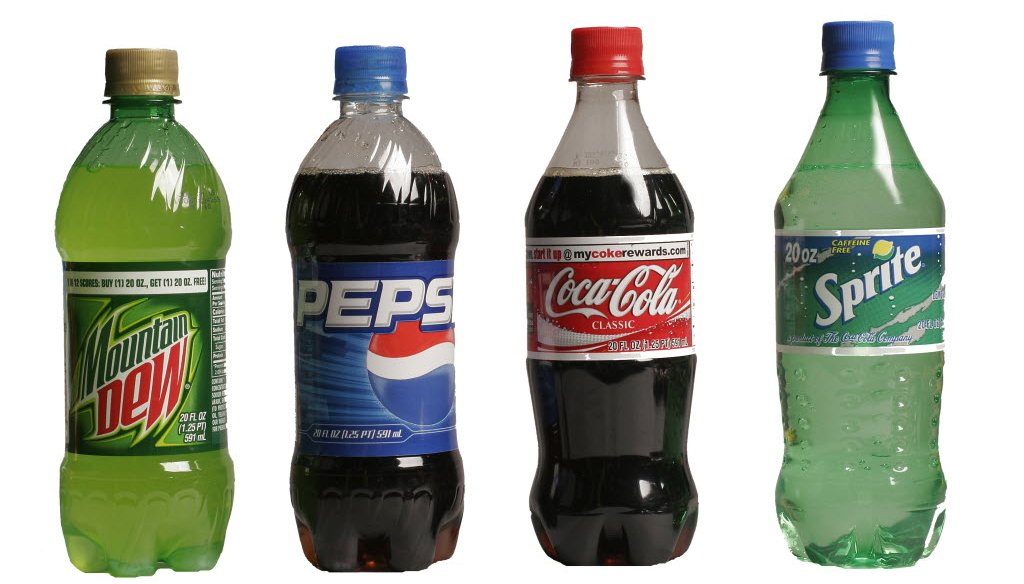Stand up for the facts!
Our only agenda is to publish the truth so you can be an informed participant in democracy.
We need your help.
I would like to contribute

Imagine bags of chips in this photo. A Wisconsin state lawmaker wants to limit how much food stamps can be used on soda, nachos and other snack foods.
"In Context" is an occasional feature of PolitiFact Wisconsin. It is intended to give readers the context of a statement that has received widespread attention.
When Wisconsin state Rep. Dean Kaufert, R-Neenah, proposed restricting the use of food stamps for junk food, 84 percent of more than 700 people answering an online poll expressed support and more than 200 people liked it on a Facebook page.
Critics of the proposal, which made news from Atlanta to San Francisco, lit up Kaufert on Twitter.
Kaufert wants "big government to tell poor people what to eat," charged one tweet. He wants to "ban food stamp recipients from buying kids cake (and) ice cream" for their birthdays, claimed another.
The reaction makes this a good candidate for In Context, an occasional PolitiFact feature that provides context to a statement that gets a lot of attention.
Here are excerpts from an interview Kaufert gave March 18, 2013, to Brian Schimming, who was sitting in for conservative talk show host Vicki McKenna on WISN-AM (1130) in Milwaukee:
Food choices
"A lot of people have brought it to many legislators’ attention that they feel that, at times, people aren’t using -- making good decisions, good choices with the food stamp dollars, on what they’re using to buy at the grocery store or at the convenience store. I think it’s time to reform the system and Wisconsin could be a leader. We’ve done so many other -- welfare and SeniorCare, a lot of those types of things. Here’s an opportunity for us to tell the (federal) government: You give us the opportunity to look at how the FoodShare program is operated and how it works, we could maybe reform it. And there’s a lot of benefits, I think, because the kids are going to get fed better.
"I talk to a lot of grocery store people, a lot of convenience stores -- especially convenience stores. A lot of money is being spent on not smart purchases and these are taxpayer dollars. And you know what, those of us who don’t mind helping the individuals that need help, at least we want to see that the money’s being spent wisely.
"Anecdotally, we’ve all heard the stories about people standing in line behind the person who is buying the tenderloin, the porterhouse and they’re using their EBT (Electronic Benefits Transfer) card to do it, while you and I who are getting by, we’re buying ground beef. That’s a small share of those folks. But also I’ve been at the convenience store many times -- the amount of nachos and soda that’s being purchased by kids with their parents’ EBT card, I think it’s time to say no to that. And we have an opportunity here to clean up the system.
Health concerns
"When you think about this, those same individuals -- and many of them are just on tough times and you know what, I’m willing to help; and I don’t want to change eligibility, I don’t want to do any of the things that’s going to hurt them. But I think we should -- it’s our tax dollars, and we should be able to say, You know what, only 5 percent of that monthly allotment can go towards nachos and soda. And give them guidelines. We do it -- you’re familiar with the WIC (Women, Infant and Children) program. Those are tax dollars. They’re used for pregnant women and women with new babies. We only allow them to buy certain things. And so I don’t know why, in this day and age of technology with smart cards, we can’t do the same thing.
"And then what’ll happen is, hopefully, people’s health will get better. And many times the same individuals that are on food stamps, they’re under the medical assistance plan. And then you and I are paying for them when they develop diabetes, when they go into the doctor’s office. And the fastest growing part of state government is medical assistance. So, if they’re not eating healthy, not eating properly -- and I don’t want to be the health police, I don’t want to be (New York Mayor) Michael Bloomberg -- but there is a correlation between -- you know what, it’s our tax dollars. We should have a little bit of say in how they’re spent.
"(The bill) directs" the state Department of Health Services "to ask for a waiver of the federal government to develop a pilot program here in Wisconsin to look at reforming how FoodShare dollars are spent. That’s really the bottom line. I don’t dictate to them how they’re going to do it; I don’t tell them -- I’m going to give them my suggestions. And I think it’s going to be hard to get some people to agree to this. I’d be even open in the pilot to incentivizing it and saying, you know what, if you’re eligible for $300 in food stamps, by agreeing to these purchase suggestions and limits, that we’ll give you 10 percent more, we’ll give you $330. It’s just to see how it works."
Our Sources
WISN-AM, state Rep. Dean Kaufert interview (at 6:45), March 18, 2013
Associated Press, "Wisconsin lawmaker wants healthier use of food aid," March 17, 2013






















